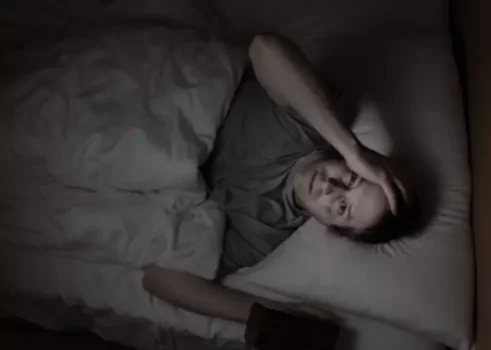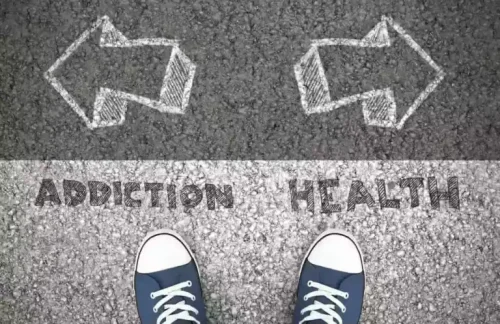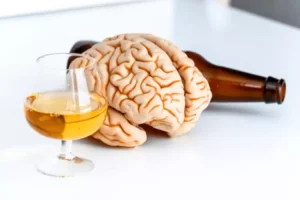
However, this will depend on both your and your therapist’s availability and accessibility. The key is to find a skilled therapist who can match the type and intensity of therapy with your needs. Sign up for free and stay up to date on research advancements, health tips, current health topics, and expertise on managing health. Get help immediately if you have thoughts of suicide or if you’re thinking about harming yourself or others.

Cognitive-Behavioral Therapy for Depression and Anxiety
CBT is one of the most effective forms of psychotherapy for a variety of mental health diagnoses. Researchers have performed over 2,000 studies on CBT to date, making it the most widely researched form of psychological treatment. In CBT, you’ll work with your therapist to identify the thinking patterns that cause your https://ecosoberhouse.com/ distress. This is an important step in managing overwhelming emotions and unhelpful behaviors. Psychotherapist is a general term, rather than a job title or indication of education, training or licensure. The purpose of CBT is to help identify thoughts and behaviors that may be negatively affecting your life.
When should I see my healthcare provider?
One is less anxiety in the relationship; chronic worry in generalized anxiety disorder frequently leads to tension and irritability, causing conflict between partners. Another is greater presence, because a CBT framework can help translate one’s intention to be present into a plan of action to make it happen. Positive mood, better sleep, happier children, and healthier thought patterns, are also ways in which CBT can improve a relationship. If CBT isn’t what’s best for you, there are various other types of therapy that may be a better fit.

x-on:slide-change.window= »currentIndex = $event.detail.currentIndex »
In the first session, you briefly describe your current problems and outline your expectations of the therapy. Then you define the goals of your therapy and make a therapy plan together with the therapist. The plan can be adjusted if your personal goals change over the course of therapy. Behavioral therapy has its origins in “behaviorism.” This theory assumes that human behavior is learned and can therefore be changed or learned differently. Behavioral therapy aims to find out whether certain behavioral patterns make your life more difficult or make problems worse. Millions of readers rely on HelpGuide.org for free, evidence-based resources to understand and navigate mental health challenges.
Medications or Psychotherapy?

CBT also has roots in Rational Emotive Behavioral Therapy (REBT), the brainchild of psychologist Albert Ellis. The two were pioneers in changing the therapeutic landscape to offer patients a new treatment option—one that is short-term, goal-oriented, and scientifically validated. Yes, many studies have documented the benefits of CBT for treating depression. Research shows that CBT is often equally as effective as antidepressants; patients who receive CBT may also be less likely to relapse after treatment than those who receive medication. CBT can provide patients with the inner resources they need to heal—and to prevent a depressive episode from recurring in the future.

CBT rests on the assumption that the way people think and interpret life events affects how they behave and feel. Therapy sessions focus on exploring and developing methods to deal with challenges and behaviors that arise from day to day. This type of therapy can be effective in treating depression, anxiety, bipolar disorder, and other mental health conditions.
- A typical course of CBT is around 5 to 20 weekly sessions of about 45 minutes each.
- Cognitive behavioral therapy (CBT) is a short-term form of psychotherapy based on the idea that the way someone thinks and feels affects the way he or she behaves.
- Cognitive behavioral therapy (CBT) is a therapy technique that aims to help people find new ways to behave by changing their thought patterns.
How is CBT different from other psychological treatments?
- CBT can last for weeks or months, usually with one session each week.
- CBT sessions tend to be very structured, but your first appointment may look a bit different.
- One of the biggest benefits of CBT is that after your course has finished, you can continue to apply the principles learned to your daily life.
- Beck developed specific procedures to help challenge a depressive client’s assumptions and beliefs and help patients learn how to change their thinking to be more realistic and thus lead to feeling better.
Cognitive behavioral therapy is used to treat mental health conditions such as depression, anxiety, obsessive-compulsive disorder and addictions. But it can also be used to treat physical conditions such as chronic pain, tinnitus and rheumatism. Interpersonal therapy (IPT) is most often used to treat depression, but is also effective for other mental health conditions. In these sessions, a therapist cbt interventions for substance abuse will help you examine your relationships with other people and work on developing better social skills to improve interactions with others. If you’re hesitant about trying CBT, keep in mind that it is a short-term technique which involves minimal risk or side effects. CBT can be delivered in person, either individually or in a group setting with family members or other people with similar concerns.
- The other strategy is a more gradual process of dealing with different triggers over a period of time (desensitization).
- These types of tasks are introduced gradually so that you learn to tolerate anxiety over time.
- When you have negative feelings and thoughts about a situation, they can start to affect your behavior toward it over time.
- The goal of MBCT is to help you become less-judgmental and concentrate more on a present-moment mindset.
